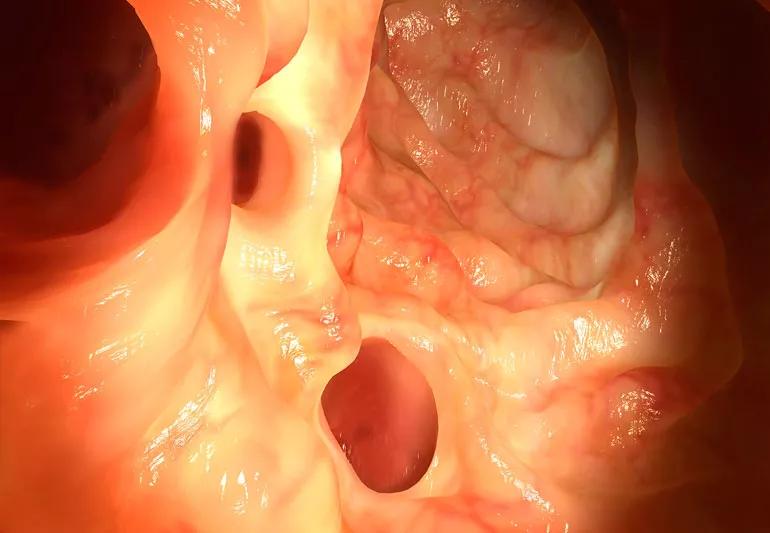The short answer from a colorectal surgeon

Image content: This image is available to view online.
View image online (https://assets.clevelandclinic.org/transform/87102bf1-aa09-460d-85fd-1ad241b384ea/diverticulitisColon-532868591-770x533_jpg)
diverticulitis in the colon
A: If you’ve had repeated bouts of diverticulitis, you have chronic diverticulitis. When those repeated bouts happen within a short period of time, that’s often referred to as smoldering diverticulitis. That’s where the disease doesn’t resolve — just like the embers of a fire.
Advertisement
Cleveland Clinic is a non-profit academic medical center. Advertising on our site helps support our mission. We do not endorse non-Cleveland Clinic products or services. Policy
This type of diverticulitis often requires surgery. But thankfully, these procedures are often now done minimally invasively, meaning that an open incision from the bottom of the sternum to the top of the pelvis isn’t required. Instead, the procedure is done via small holes in the abdominal wall.
Through these incisions, surgeons take out the part of the bowel that’s diseased, which is in the sigmoid colon (that’s the last third of your large intestine). Then, they reconnect the remaining colon to the rectum — and there’s no need for a bag (stoma).
Patients can typically walk and drink liquids the same day of after surgery and return home after a two- to five-day hospital stay.
— Colorectal surgeon Michael Valente, DO
Advertisement

Sign up for our Health Essentials emails for expert guidance on nutrition, fitness, sleep, skin care and more.
Learn more about our editorial process.
Advertisement
It’s not an enema or bowel prep, and this colonic hydrotherapy can harm proper colon function
Reducing inflammation is key when you’re in a flare-up, but so is having a preventive nutritional plan in place when you’re not
Some symptoms you can treat at home, but others require a visit to the doctor
TikTok trend encourages eating papaya seeds to ‘deworm’
The caffeine and natural acids in coffee may trigger acid reflux, but there are ways to lessen the effects
Wait a few hours, then start with water or ice chips, graduating to clear liquids and then, soft, bland foods
Eating a healthy diet, reducing stress, and focusing on exercise and sleep can help keep your digestive system in top form
People with an inflamed esophagus may also have other conditions that cause a nagging, persistent cough
Although it could be used as a moisturizer, this new trend is not recommended
Communicating clear limits helps protect your time, energy and emotional well-being
High cholesterol can be genetic, but testing and treatment can lower your heart disease risk